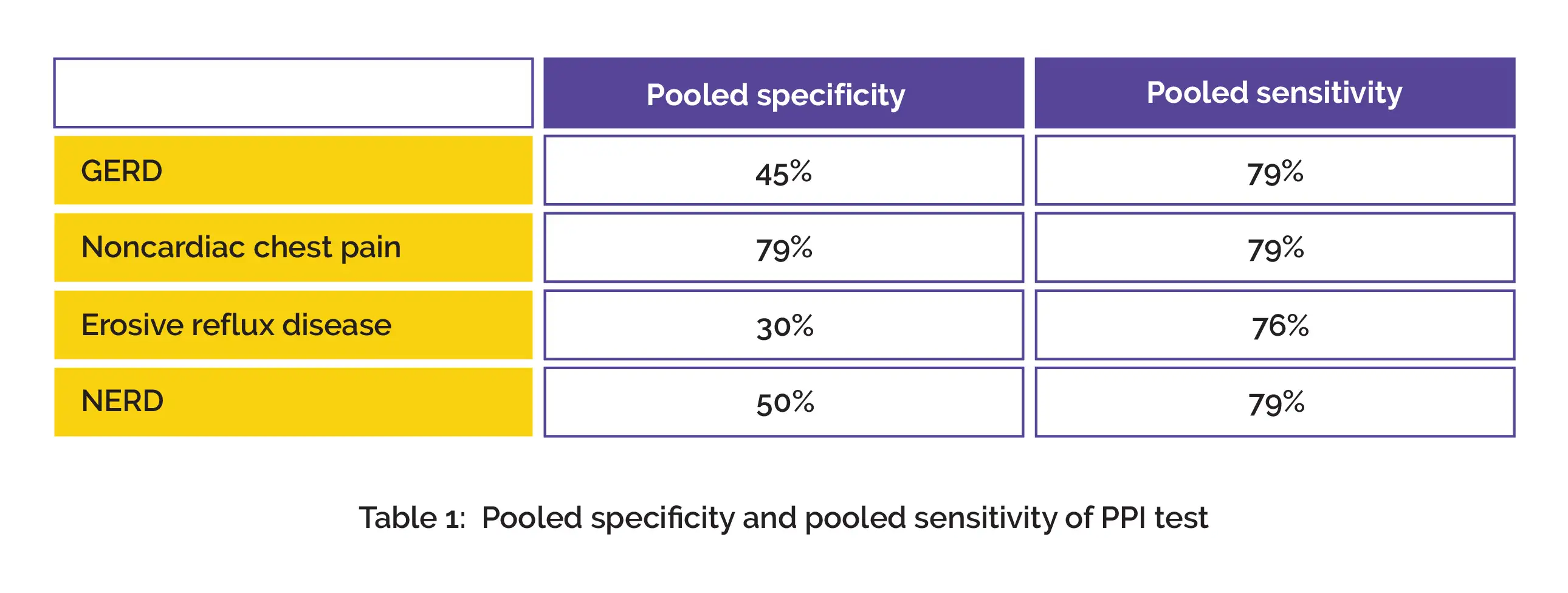Categories
Change Password!
Reset Password!


The proton pump inhibitor test appears to be beneficial to diagnose noncardiac chest pain and GERD.
In a systematic review and meta-analysis, the proton pump inhibitor (PPI) test was found to be sensitive in gastroesophageal reflux disease (GERD) but with suboptimal specificity. In GERD-linked noncardiac chest pain, the test performed better. The diagnostic accuracy was comparable in non-erosive reflux disease (NERD) and erosive reflux disease.
Sara Ghoneim et al. aimed to explore diagnostic precision of PPI test in noncardiac chest pain and GERD and to investigate test performance in NERD and erosive reflux disease. Databases like MEDLINE, Web of Science, and Cochrane Controlled Register of Trials were explored to find out studies reporting diagnostic accuracy of PPI test in adults with typical GERD and noncardiac chest pain who underwent assessment utilizing an accepted reference standard.
The subgroup assessment was carried out. Using Quality Assessment of Diagnostic Accuracy Studies-2 tool, risk of bias was evaluated. A total of 19 studies (noncardiac chest pain=8, GERD=11) involving 1691 people were incorporated. The pooled specificity and pooled sensitivity of PPI test in GERD, noncardiac chest pain, erosive reflux disease, and NERD, are shown in Table 1:

Hence, the PPI test appears to be valuable for diagnosing noncardiac chest pain and GERD.
Journal of Clinical Gastroenterology
Diagnostic Accuracy of the Proton Pump Inhibitor Test in Gastroesophageal Reflux Disease and Noncardiac Chest Pain: A Systematic Review and Meta-analysis
Sara Ghoneim et al.
Comments (0)